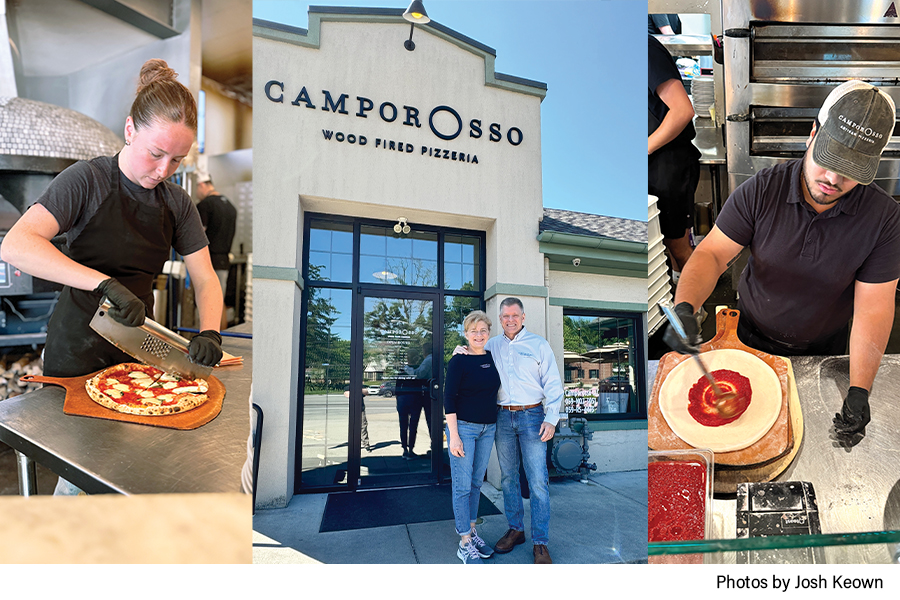So many of us are guilty of falling into the same trap: over time, we develop great faith in our people, so we continually provide what we think are opportunities for their advancement. After all, they are punctual, responsible, caring, excellent at __________ (fill in the blank). What many of us fail to ask is: “do you actually want this opportunity?” And, further, do they have the necessary personality traits to succeed? Instead, we believe that continual promotion is the end-goal of most employees. We believe in these people and are astounded when we promote them to a position they struggle in despite our teachings and their proficiency. It’s not that they cannot learn, it’s that their personality is not suited for the proverbial shoes!
How did this revelation come about? I had an employee who was extremely competent at making pizza — one way. The same exact way, over and over. He could make pizza continuously for the entire day and they were beautiful and identical. Didn’t matter if the dough was cold, warm, over-proofed, tight or yielding. He approached it in exactly the same manner. In time, he asked: “what can I take off your plate to make your life easier?” Since I both respected his abilities and believed in him, this is where our relationship began its descent. I put the wrong shoes on him. After handing over tasks and responsibilities that caused him to reach his level of incompetence, the frustration set in. What I later learned in discussing this paradigm with John Arena was that there is something called the “Peter Principle”. It states: “members of a hierarchy are promoted until they reach the level at which they are no longer competent.” BAM!
At this point, I realized that all of our top management should take a personality profile so that this idea of “putting the wrong shoes on an employee” would cease. It was mind-blowing. The reports came back and made me rethink the position each person was in, because their personality did not align with either the responsibility or the attributes necessary to master the task. Reading the employee above’s summary was an eye-opening moment. It essentially said, “You tend to master a single task and dislike anyone who tries to make you more well-rounded”. BINGO. And here’s the moment I began considering taking the wrong shoes off of people. However, just like a psychological mobile, moving any one piece shifts the entire group. It caused disdain, frustration, contempt and, in the end, an exodus. This was a painful lesson and I’m responsible for part of the pain. Why? I let it go on for far too long. Since this time, I have carefully introduced employees to positions based on their answers to questions about what they see themselves as proficient doing combined with my observations and those of management along with co-workers. Some employees believe they are meant to be servers but are overwhelmed by a full dining room and hide behind the pass-bar wall. Others are single-task oriented and enjoy doing the same thing over and over. Now, I no longer try to push people into a role they don’t necessarily want despite them being good, loyal, strong, etc. And I will never promote anyone to manager again without the testing that confirms my observations and beliefs.
There is a young man in the store now struggling with multi-tasking after attending chef school. While observing his struggles, I’ve given many pointers and asked the right questions. Recently, he jumped on dishes and proclaimed: “I love doing dishes, there is only one task to perform”. I heard him loud and clear. Shortly, I will ask: “if I offered you a position with only one task, would you prefer it over a position that forces you to multitask?” If he says yes, I will offer the dish position to him because it’s something he may excel at. Personally, I feel that being a dishwasher is a great escape from the difficulties of management for the very same reason: no one bothers you and you have only one task.
The personality testing I mentioned above is worth every penny. It’s administered by the Gallup organization and is titled CliftonStrengths.
Personality testing is not the solution to all your woes. It must be combined with a different approach to management. If an employee displays the abilities and personality traits you believe are necessary for the position, administer a test to confirm. Beforehand, ask if they actually want the position while having a discussion about where they believe their strengths lie. My favorite question is: “Where in this restaurant are you best suited?” Follow that up with: “What would you like to learn if you could have any position here?” The resulting discussions will give you a better idea of their thought patterns and what they’re looking for.
If you help people achieve their goals and put them in the most appropriate positions (not merely the position that’s open because someone quit) your odds are far higher that the retention and attention of this employee will be long term.
Anthony DeSousa owns Antonio’s Real NY Pizza in Estes Park, Colorado.









